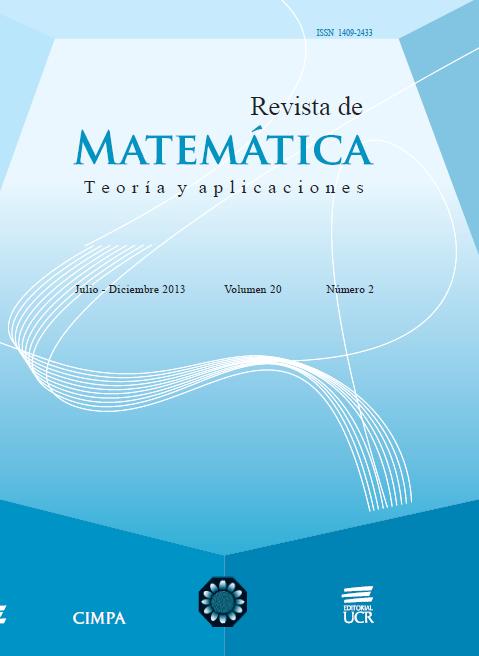Abstract
Many real-world problems can be expressed as an instance of the constrained nonlinear optimization problem (CNOP). This problem has a set of constraints specifies the feasible solution space. In the last years several algorithms have been proposed and developed for tackling CNOP. In this paper, we present a cultural algorithm for constrained optimization, which is an adaptation of “Musical Composition Method” or MCM, which was proposed in [33] by Mora et al. We evaluated and analyzed the performance of MCM on five test cases benchmark of the CNOP. Numerical results were compared to evolutionary algorithm based on homomorphous mapping [23], Artificial Immune System [9] and anti-culture population algorithm [39]. The experimental results demonstrate that MCM significantly improves the global performances of the other tested metaheuristics on same of benchmark functions.
References
Biles, J.A. (1994) “GenJam: A genetic algorithm for generating jazz solos”, International Computer Music Conference. Aarhus, Denmark: International. Computer Music Association: 131–137.
Bekrar, A.; Chaabane, S.; Trentesaux, S.; Bornschlegell, A.; Pellé, J.; Harmand, S. (2011) “Hybrid PSO-tabu search for constrained non-linear optimization problems ”, ICSI 2011: International Conference on Swarm Intelligence.
Cai, Z.; Wang, Y.A. (2006) “Multiobjective optimization based evolutionary algorithm for constrained optimization”. IEEE Transactions on evolutionary computation 10: 658–675.
Chung, C.J.; Reynolds, R.G. (1996) “A testbed for solving optimization problems using cultural algorithms”, Proceedings of the Fifth Annual Conference on Evolutionary Programming : 225–236.
Coello, C.A.C.; Becerra, R.L. (2002) “Constrained optimization using an evolutionary programming-based cultural algorithm”. Adaptive Computing in Design and Manufacture V, Springer, London: 317–328.
Coello, C.A.C.; Becerra, R.L. (2003) “Evolutionary multiobjective optimization using a cultural algorithm”, Swarm Intelligence Symposium, 2003. SIS-03. Proceedings of the 2003 IEEE: 6–13.
Cope, D. (2000) The Algorithmic Composer. A-R Editions Inc. Wisconsin USA.
Cope, D. (2005) Computer Model of Musical Creativity. MIT Press, Cambridge MA.
Cruz Cortés, N. (2004) Sistema Inmune Artificial para Solucionar Problemas de Optimización. Doctoral Thesis, CINVESTAV-Instituto Politécnico Nacional. Ciudad de México.
de Bono, E. (1991) El Pensamiento Lateral: Manual de Creatividad. Espsa libros S.L.U.
Dorigo, M.; Maniezzo, V.; Colorni, A. (1996) “Ant system: optimization by a colony of cooperating agents”, IEEE Transactions on Systems, Man, and Cybernetics 26: 29–41.
Geem, Z.W. (2009) Recent Advances in Harmony Search Algorithm. Springer, New York.
Geem, Z.W. (2010) Music-Inspired Harmony Search Algorithm. Springer, New York.
Geem, Z.W., Kim J.-H., Loganathan G.V. (2001) “A new heuristic optimization algorithm: harmony search”, Simulation 76(2): 60–68.
Gessler, N. (2003) “Evolving cultural things-that-think”, Computational Synthesis: From Basic Building Blocks to High Level Functionality, Papers from the 2003 AAAI Spring Symposium, Technical Report SS–03–02. Menlo Park, AAAI Press: 75–81.
Gould N., Orban D., Toint P.L. (2001) “ CUTTEr a Constrained and Unconstrained Testing Environment, revisited”, in: http://www.cuter.rl.ac.uk/problems.html, consulted on 20/05/13.
Horner, A.; Goldberg, D.E. (1991) “Genetic algorithms and computer assisted music composition”, Music Composition. ICMC9́1 Proceedings, International Computer Music Association, San Francisco: 479–482.
Hu, X.; Eberhart, R.(2002) “Solving constrained nonlinear optimization problems with particle swarm optimization”, in: 6th World Multiconference on Systemics, Cybernetics and Informatics (SCI 2002): 203–206.
Jacob B.L. (1996) “Algorithmic composition as a model of creativity”, Organised Sound, Cambridge University Press: 157–165.
Jacob B.L. (1995) “Composing with genetic algorithms”, International Computer Music Association: 452–455.
Jin, X.; Reynolds, R.G. (1999) “Using knowledge based evolutionary computation to solve nonlinear constraint optimization problems: a cultural algorithm approach”, Proceedings of the 1999 Congress on Evolutionary Computation 3: 1678.
Kennedy, J., Eberhart, R.C. (1995) “Particle swarm optimization”, International Conference Neuronal Networks : 1942–1948.
Koziel, S.; Michalewicz, Z. (1999) “Evolutionary algorithms, homomorphous mappings, and constrained parameter optimization”, Evolutionary Computation 7: 19–44.
Landa Becerra, R.; Coello Coello, C.A. (2005) “Optimization with constraints using a cultured differential evolution approach”, in: Proceedings of the GECCO Conference: 34–35.
Lee, K.S.; Geem, Z.W. (2004) “A new structural optimization method based on the harmony search algorithm”, Computers & Structures 82: 781–798.
Leyffer, S.; Mahajan, A.; Cochran, J.J.; Cox, L.A.; Keskinocak, P.; Kharoufeh, J.P.; Smith J.C. (2010) Software for Nonlinearly Constrained Optimization. John Wiley & Sons, New York.
Liu Y.T. (2000) “Creativity or novelty?: Cognitive-computational versus social-cultural”, Design Studies : 261–276.
McDonnell, J.; Reynolds, R.; Fogel, D.(1995) “Using cultural algorithms for constraint handling in GENOCOP”, Evolutionary Programming IV: Proceedings of the Fourth Annual Conference on Evolutionary Programming, MIT Press: 289–305.
Michalewicz, Z. (1995) “Genetic algorithms, numerical optimization, and constraints”, Proceedings of the 6th International Conference on Genetic Algorithms : 151–158.
Michalewicz, Z.; Janikow, C.Z. (1996) “Genocop: a genetic algorithm for numerical optimization problems with linear constraints”. Communications of the ACM - Electronic supplement to the December issue 39, article 175.
Michalewicz, Z.; Fogel, D.B. (1998) How to Solve it: Modern Heuristics. Springer, New York.
Michalewicz, Z.; Deb, K.; Schmidtz, M.; Stidsenx, T. (2000) “Test-case generator for nonlinear continuous parameter optimization techniques”, IEEE Transactions on Evolutionary Computation 4: 197–215.
Mora-Gutiérrez, R.; Ramı́rez-Rodríguez, J.; Rincón-García, E.(2012) “ An optimization algorithm inspired by musical composition”, Artificial Intelligence Review. Springer Netherlands: 1–15 .
Mora-Gutiérrez, R.; Ramı́rez- Rodríguez, J.; Rincón-García, E.; Ponsich, A.; Herrera O. (2012) “An optimization algorithm inspired by social creativity systems”, Computing 94(11): 887–914.
Mora-Gutiérrez, R. (2013) Diseño y desarrollo de un método heurístico basado en un sitema socio-cultural de creatividad para la resolución de problemas de optimización continuos no lineales y diseños de zonas electorales. Thesis Ph. D. Universidad Nacional Autónoma de México. Ciudad de México.
Ray, T.; Kang, T.; Chye, S.K. (2000) “An evolutionary algorithm for constrained optimization”, GECCO-00 : 771–777.
Ray, T.; Liew, K.M. (2003) “Society and civilitation: an optimization algorithm based on the simulation of social behavior”. IEEE Transaction on evolutionary computation 7: 386–396.
Reynolds, R.G. (1994) “An introduction to cultural algorithms”. Proceedings of the 3rd Annual Conference on Evolutionary Programming, World Scientific Publishing: 131–139.
Tang, W.; Li, Y. (2008) “Constrained optimization using triple spaces cultured genetic algorithm”. International Conference on Natural Computation 6: 589–593.
Comments

This work is licensed under a Creative Commons Attribution-NonCommercial-ShareAlike 4.0 International License.
Copyright (c) 2013 Revista de Matemática: Teoría y Aplicaciones





